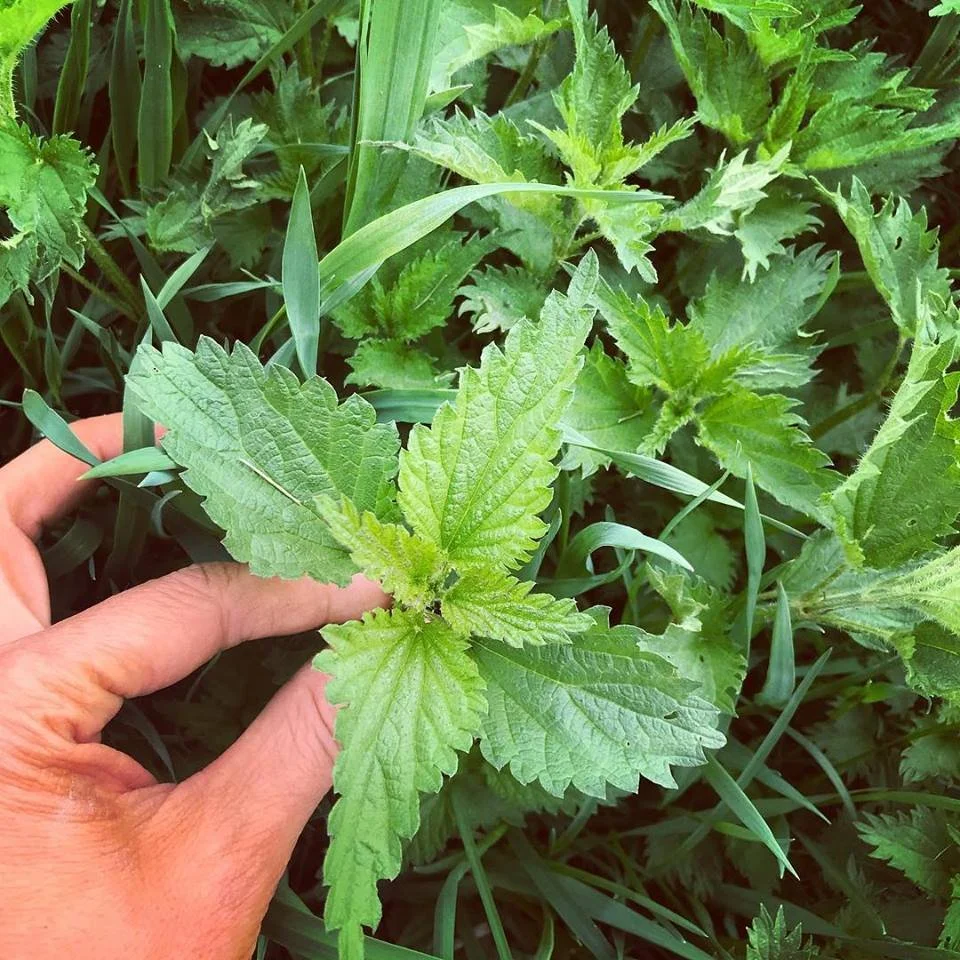From the Roots Up:
A Course in Bioregional Herbalism
This course is all about connection. We all come from plant people, be it an ancestor one generation back or fifty. This class is a remembering. Of our ancestral connection to the plants. Of herbal medicine. Of trust in nature. Of trust in ourselves.
Our focus is on medicine-making, sustainable wildcrafting, building the home apothecary, and nurturing relationships with our locally abundant medicinal plants.
Topics Covered
-
*
Herbal ecology
-
*
Deep observation
-
*
Developing a local, bioregional materia medica
-
*
Field botany & plant ID
-
*
Reading the medicinal landscape
-
*
Creating intimacy with the plants
-
*
Ethical wildcrafting, harvesting techniques & guidelines
-
*
Folk medicine-making (infusions, decoctions, infused oils, vinegars, syrups, wild sodas, tinctures, elixirs, honeys, oxymels, cordials, salves, burning bundles, herbal smokes, flower essences, body scrubs, bath salts, and more)
-
*
Building the home apothecary
-
*
In-depth medicinal use
We have two apprenticeship offerings:
Year I Apprenticeship
Get to know our locally abundant medicinals up close and personal.
Now offering Sunday and Monday sessions- you choose!
1 Sunday or Monday/month, April-Nov
10am-4:30pm
Sundays- 4/14, 5/12, 6/16, 7/21, 8/11, 9/15, 10/6, 11/3
OR
Mondays- 4/22, 5/20, 6/24, 7/29, 8/19, 9/23, 10/21, 11/4
FULL for 2024
Year I
In this hands-on, experiential herb class we dig deep and form an intimate connection with each plant we work with…
This is our original, signature program we’ve now been offering for 10+ years!
Please note: Our seasonal class sessions of From the Roots Up are on pause for 2024 (and potentially beyond) as we make space for our new Year II program.
Topics covered include sustainable wildcrafting, field botany and plant ID, medicine-making, building the home apothecary, and learning the full materia medica (medicinal uses) for many of our locally abundant medicinal plants. If you’ve never taken a class at Milk & Honey Herbs or are an herbal newbie it’s strongly advised to start with this class before taking Year II.
Each day follows the same flow, focusing on 3 plants in depth, based on what is in season and at its prime medicinal stage. Classes are held entirely outside, as we will be meeting the plants in their chosen environment- forest edges, wild fields, woodlands and occasionally the herb garden.
We’ll start by looking at the big, “ecological picture.” In what type of habitat is the plant growing? What other plants is it associating with? What other medicinals are likely to around? What function(s) might it be performing in the landscape? Why is it here? We’ll put these skills into practice and learn to read the herbal landscape.
For each plant we meet, we’ll cover the botany of the plant- family, genus, species and field ID characteristics. This will give you the confidence and framework to identify the plants on your own. Then comes time for deep observation. An important part of the learning comes from contemplative time with the plant. This may look different for each of us, but might include journaling, tasting, simply sitting with the plant, photography, meditation, drawing, and so on…
Next we'll do an in-depth materia medica of the plant- students will learn their uses, medicinal actions, growth requirements, favored medicinal preparation, energetics, and more. Then we’ll do some harvesting in a respectful, ecologically sensitive way. Then comes the medicine-making! We’ll be processing our harvest into medicine right there in the field with the 3 plants we’re working with each day.
Herbal preparations we’ll make include tinctures, vinegars, oxymels, honeys, salves, infused oils, flower essences, smoke wands, smoking blends, bath salts, body scrubs, infusions, decoctions, syrups, and more. Our focus is on folk medicine-making i.e. making medicine the way our ancestors have for centuries, with simple household tools found in every kitchen.
By the end of the program students can expect to intimately know over 20 of our locally abundant medicinals and have a wealth of herbal medicine they've made themselves to stock their home apothecary!
Students will also receive in-depth handouts detailing the medicinal use of the plants we meet, as well as our 100+ page Course Packet. All plant material for medicine-making will be provided.
Upon completion a certificate will be awarded, detailing 48 course hours completed in bioregional herbalism.
FULL for 2024
Year II Apprenticeship
Deepen the learning. Our Year II program builds and expands upon the concepts and topics introduced in our first year program
1 Sunday/month March-Nov
10am-4:30pm
Sundays- 3/17, 4/7, 5/5, 6/9, 7/7, 8/4, 9/8, 10/20, 11/10
FULL for 2024
Year II
You asked for it and we listened! After years of students asking for more, I’m thrilled to be offering this Year II program…
Our Year II program builds and expands upon the concepts and topics introduced in our first year program. Perfect for a student who has completed our Year I From the Roots Up Apprenticeship, any of the seasonal class sessions we have offered in the past, or anyone who has taken a beginner herbal program.
We’ll hold true to the foundations of From the Roots Up- exploring bioregional herbalism, hands-on learning, sustainable wildcrafting, field botany and plant ID, medicine-making, and building the home apothecary- while bringing-in more advanced topics. Classes will be held entirely outside on our beloved local farms except for our March class, which will be a very special day-long intensive on understanding herbal energetics, the tissue states, and the medicine of the 5 flavors.
After March, each day will follow a similar flow. We’ll spend our mornings on a spacious herb walk together identifying the medicinals in the landscape, including trees, shrubs, mushrooms, and herbs and learning their sustainable harvest specifications and medicinal use. Time will also be given for plant sits and sustainable harvesting.
Each afternoon will be an intensive deepening into various herbal topics, as well as medicine-making. We’ll make preparations that compliment our topic of choice, with a deeper focus on multi-herb preparations, food as medicine, and formulation.
Upon completion a certificate will be awarded, detailing 54 course hours completed in bioregional herbalism.
Our afternoon topics and medicine-making may include:
Seasonal & Environmental Allergies | Spring Allergies Oxymel + Love Your Liver Syrup + Spring Greens Vinegar
Wild Herbal Fermentation & Food as Medicine | Wild Sodas + Deep Root Kimchi + Wild Greens ‘Kraut + Herbal Pesto + Wild Salad + Verdurette + Herb Salts
Gut Health | Gut Heal Tea + Rest & Digest Bitters + Gut Heal Gummies + Calm Belly Tea
Building a Resilient Nervous System | Adaptogen Bites + Chill-ax Honey- Heart Hug Cordial + Flower & Environmental Essences
Immunity & Mushroom Medicine | Winter Immune Honey + Deep Immune Syrup + Herbal Throat Sprays + Fever Management Tea
The D.I.Y. Herbal Spa | Backyard Heal-all Salve + Seaweed Bath Salts + Luscious Hand & Body Lotion + Advanced Herbal Oils
Bioregional Smoke Medicine | Burning Bundles + Smoking Blends + Kyphi Solid Incense
Harmonizing with the Seasons & Supporting Seasonal Transitions | Grief Support Chai + Winter Blues Tea + The Herbal Wheel of the Year
Optimizing Brain Health| Mental Focus Tincture + Calm & Ground Glycerite + Brain Boosting Electuary
Advanced Medicine-Making| Tallow Balm & Animal Fat Extractions + Mushroom Double Extracts + Weight: Volume Tinctures + Alcohol Intermediary Infused Oils + the Art of Formulation
And many other herbal topics too depending on each group’s interest!
Upon completion a certificate will be awarded, detailing 54 course hours completed in bioregional herbalism.
FULL for 2024
Classes are held in various locales around the Amherst/Northampton, MA area, including Crimson & Clover Farm, Just Roots Farm, Brookfield Farm, the Farm at Avalon, 9 Mountain Retreat Center, the Montague Retreat Center (in collaboration with the HeARTbeat Collective), the Blue Crow Botanicals Farm, and Sawmill Herb Farm
Class size is limited. Register early to hold your space in class!
FULL for 2024!
Details
~ The 8-month Year I From the Roots Up Apprenticeship tuition is $1100 ($995 Early Bird Discount when paid in full by Dec 1st)- PLEASE NOTE: Our Year 1 is FULL! (email milkandhoneyherbs@gmail.com to get on the waiting list)
~The 9-month Year II Apprenticeship is $1225 ($1100 early bird discount paid in full by Dec 1st)
~Payment plans available- can be broken into monthly payments. See registration page for payment plan details
~Limited worktrade available. (FULL for Year 1 + Year 1 Sunday session)
~Tuition includes all the plant material for medicine-making, extensive handouts, and the 100+ page "From the Roots Up Medicine-Making Guide." Students are responsible for medicine-making supplies
~There will be monthly readings and resources given for those wanting to deepen their learning further
~Accessibility: Classes take place outdoors on uneven terrain and some bathrooms require a step to enter. In a typical class we have a “homebase” on the farm, anywhere from a 1-5 minute walk down dirt farm roads from the parking lot, where our medicine-making supplies live for the day. We walk, on average, a mile around the farms each class
~In keeping with the state guidance, masks will not be required outdoors or indoors, however of course anyone who wishes to mask may do so. Our classes are held entirely outside and we only use indoor spaces in case of rain and they are all well-ventilated barns or, in one location, a yurt that has screen windows.
~All dates are subject to change but students will be given ample notice if they do
~3% of From the Roots Up tuition payments are donated to BIPOC-led herb schools and indigenous Land Back projects
To Sign-up:
~Class size is limited and class often fills-up. To register and hold your place in class, visit our registration page!
~PLEASE NOTE: Classes are FULL for 2024
Plants we have worked with in class include:
Wild Rose/Rosehips (Rosa multiflora), Mugwort (Artemisia vulgaris), Plantain (Plantago spp), Yarrow (Achillea millefolium), St Johns Wort (Hypericum perforatum), Calendula (Calendula officinalis), Motherwort (Leonaris cardiaca), Peach Tree (Prunus persica), Garlic Mustard (Alliaria petiolata), Celandine (Chelidonium majus), Queen Anne's Lace (Daucus carota), Nettles (Urtica dioica), Jewelweed (Impatiens spp), Goldenrod (Solidego spp), Black Raspberry (Rubus occidentalis), Comfrey (Symphytum officinale), Alfalfa (Medicago sativa), Yellow Dock (Rumex crispus), Sage (Salvia officinalis), Dandelion (Taraxacum officinalis), Red Clover (Trifolium pratense), Chickweed (Stellaria media), Evening Primrose (Oneothera biennsis), White Pine (Pinus strobus), Eastern Hemlock (Tsuga canadensis), Sweet Birch (Betula lenta), Barberry (Berberis spp), Autumn Olive (Eleagnus umbellata), Pokeweed (Phytolacca americana), Valerian (Valeriana officinalis), Sassafras (Sassafrass albidum), Reishi Mushroom (Ganoderma tsugae), Cleavers (Galium aparine), Self Heal (Prunella vulgaris), Ground Ivy (Glechoma hederacea), Staghorn Sumac (Rhus typina), Japanese Knotweed (Fallopia japonica), Violet (Viola spp), Bee Balm (Monarda fistulosa), Elderberry (Sambucus nigra ssp canadensis), Blackberry (Rubus spp), Lambs Quarters (Chenopodium album), Mullein (Verbascum thapsus), Burdock (Arcticum lappa), Black Walnut (Juglans nigra), Turkey Tail Mushroom (Trametes versicolor), and Purple Loosestrife (Lythrum salicaria)
Kind Words …
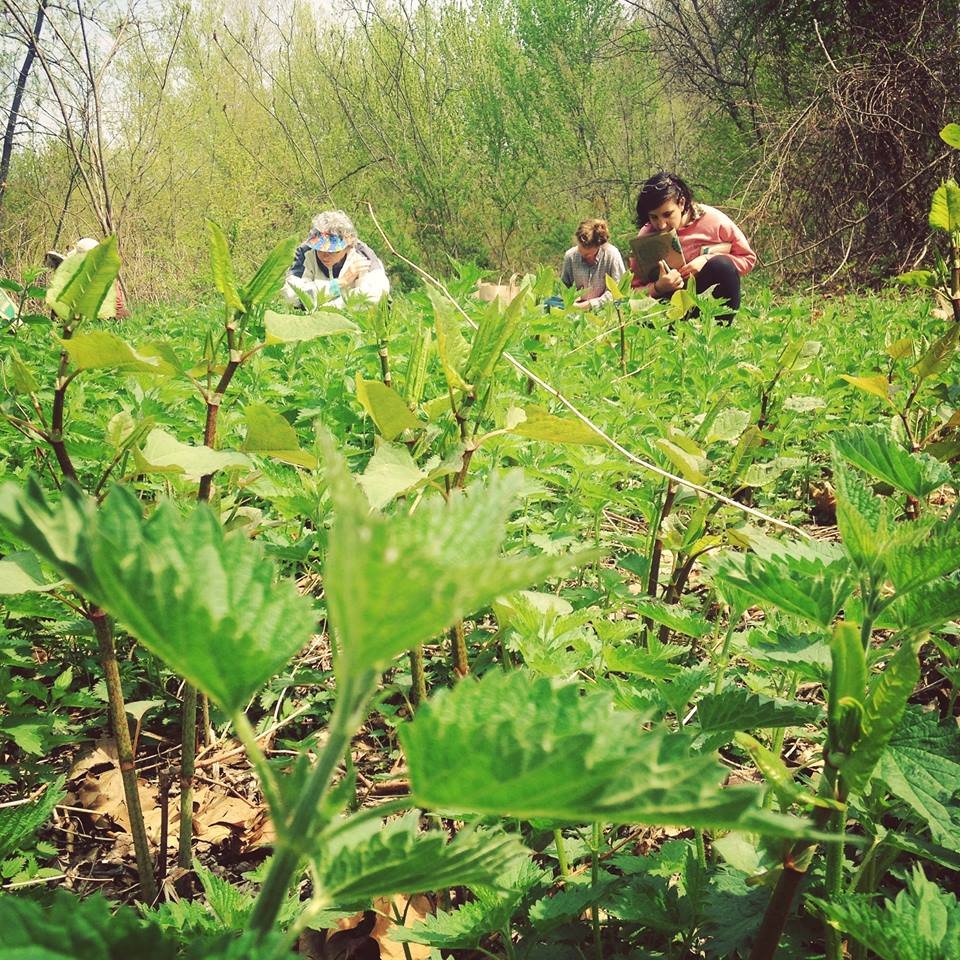
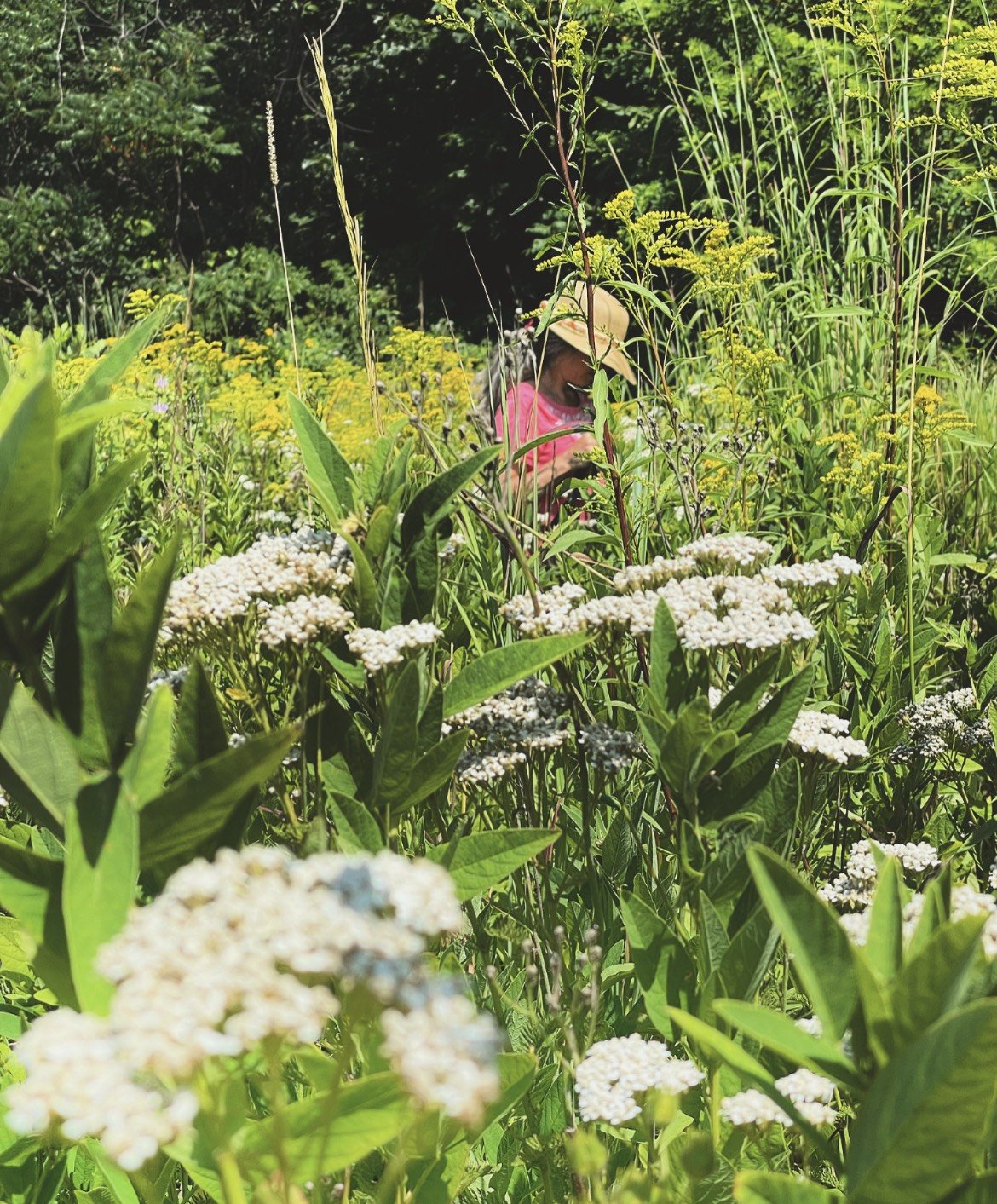

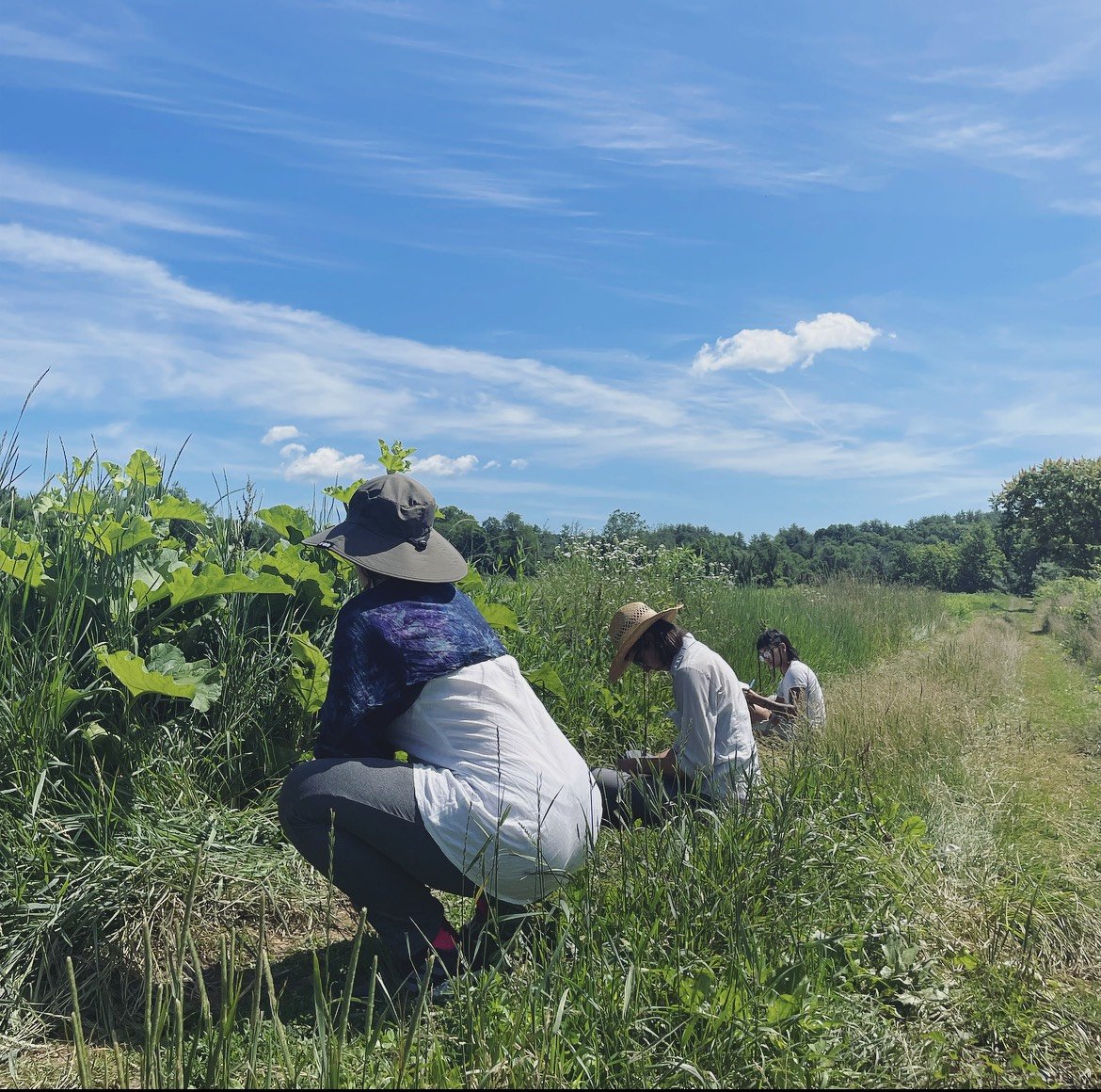
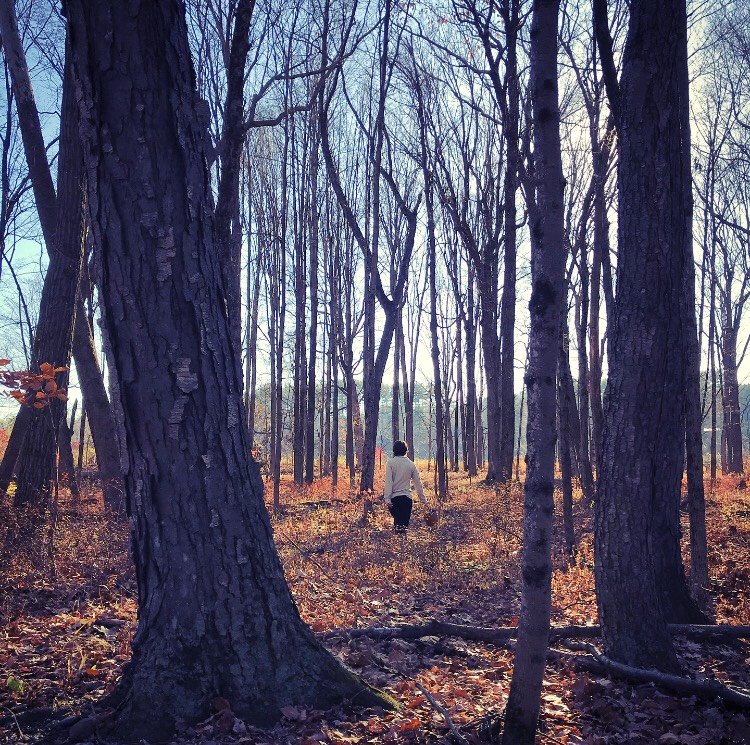
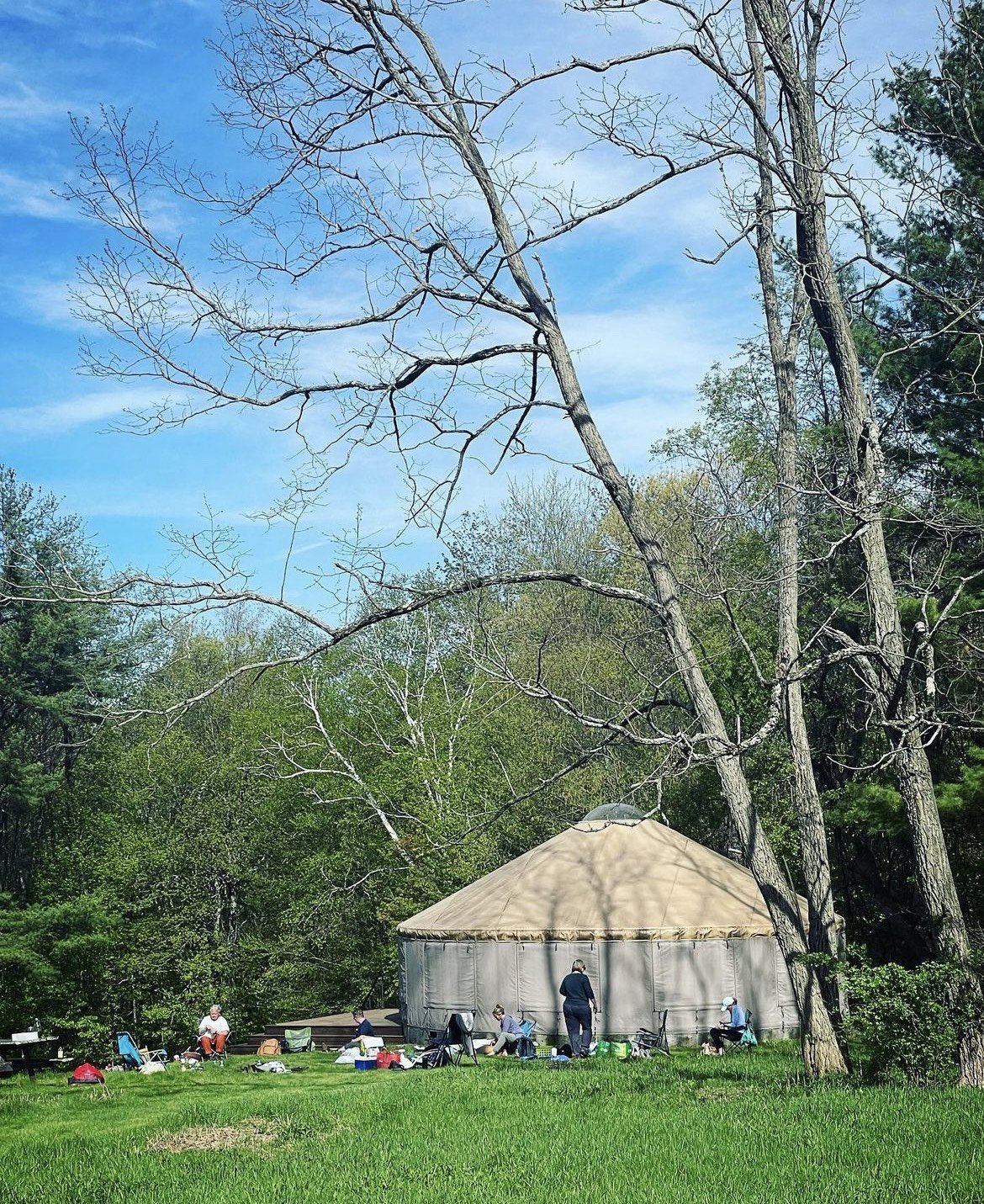
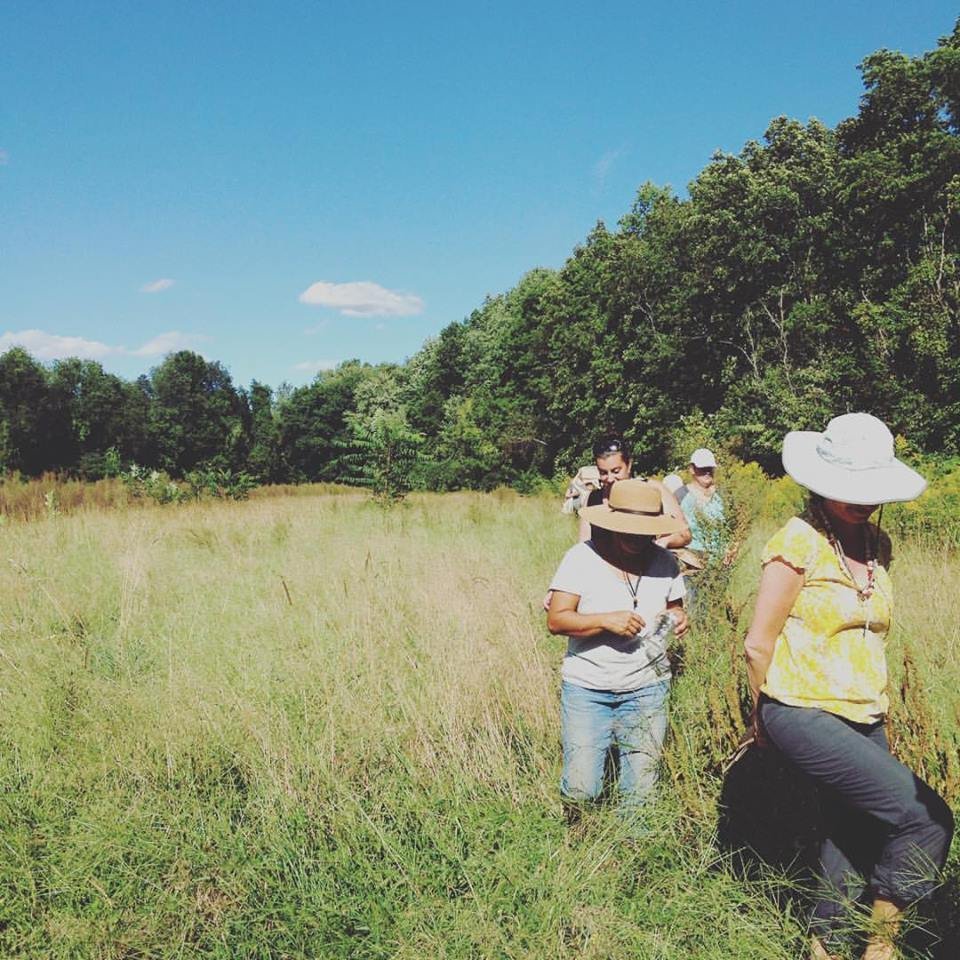
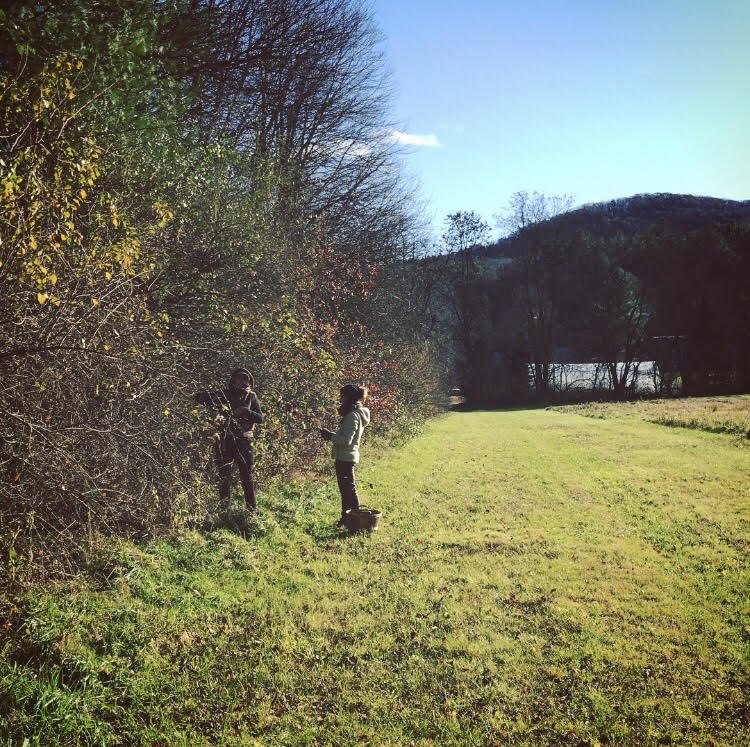
Still have questions? Feel free to reach out.











